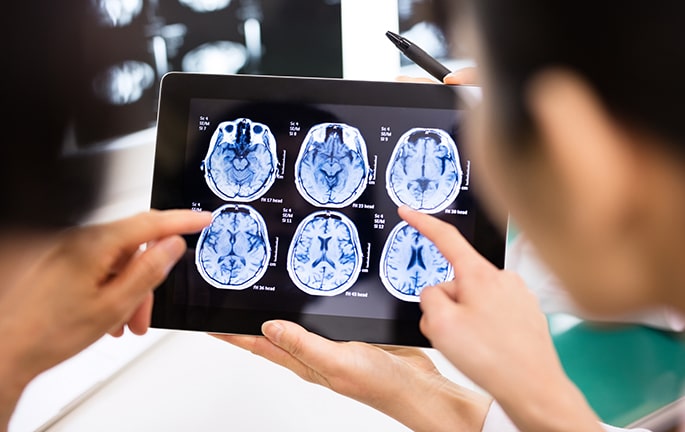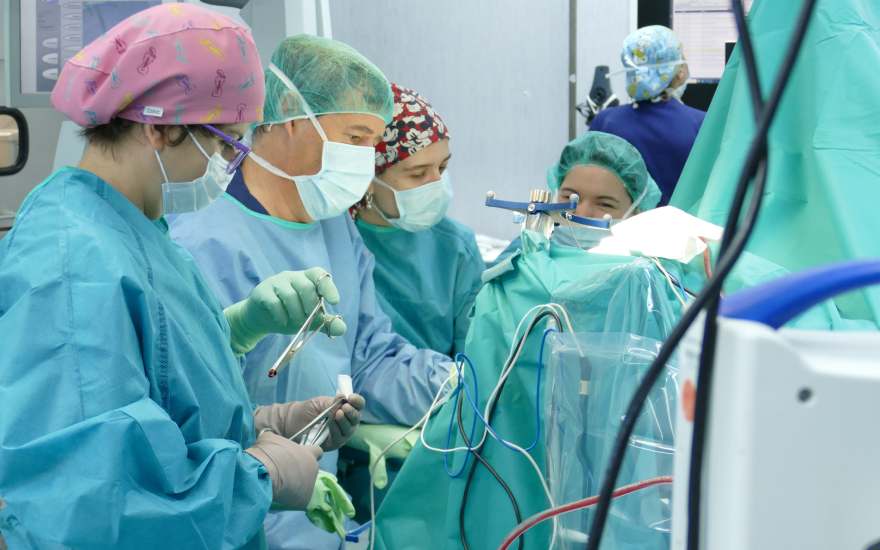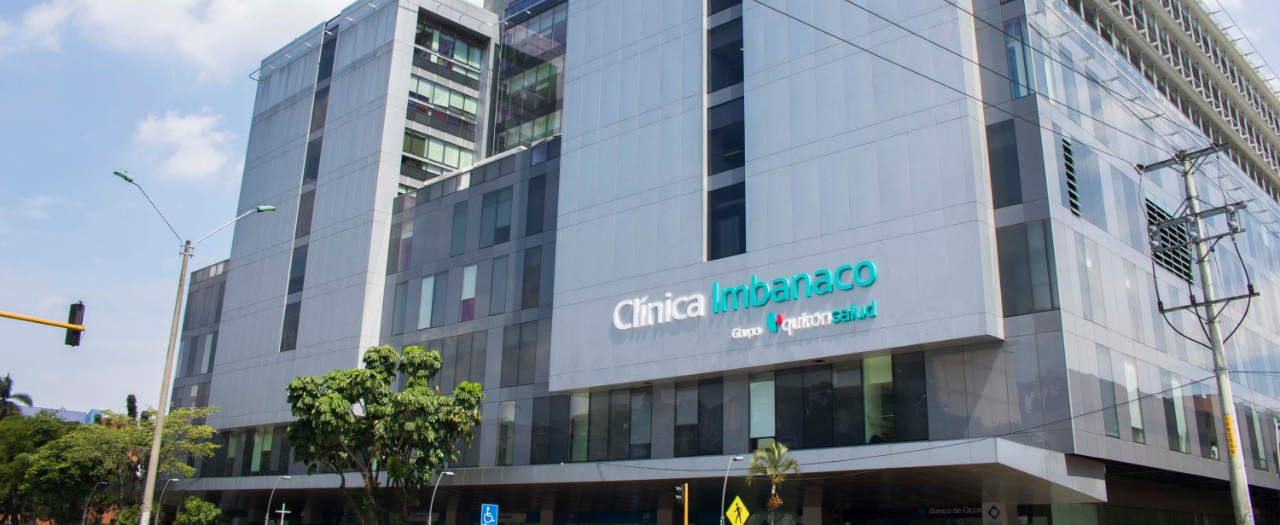Neurosurgery
Find answers to your questions about neurosurgery. Learn what this specialty entails, its field of study, the conditions it treats, and its main diagnostic methods and surgical techniques. Schedule your consultation with a neurosurgeon at one of our hospitals.

What is neurosurgery?
Neurosurgery specializes in the surgical treatment of conditions affecting the nervous system, regardless of whether their origin is congenital, infectious, tumoral, vascular, or trauma-induced.
This specialty works in close collaboration with other branches of medicine, such as neurology and oncology, to offer personalized treatment for each patient.
What does neurosurgery study?
Neurosurgery focuses on the study of diseases affecting the brain, nerves, and spinal cord that require surgical intervention. Quirónsalud neurosurgeons specialize in specific areas, allowing them to achieve better results:
- Functional neurosurgery: Modifies altered brain functions, such as in epilepsy or trigeminal neuralgia.
- Vascular neurosurgery: Treats conditions affecting the brain's veins and arteries.
- Surgical neuro-oncology: Performs surgeries as part of the treatment for tumors affecting the nervous system.
- Pediatric neurosurgery: Treats patients under 16 who require special care due to the size of their organs, developmental stage, and conditions that manifest at an early age.
Who is neurosurgery for?
Neurosurgery treats patients with nervous system diseases requiring surgical intervention, either because it is the only effective treatment available or because it offers them a better quality of life.
Techniques, procedures, and diagnostic methods
Neurosurgery requires highly specialized technical resources for accurate diagnoses and high-precision surgeries. The most commonly used procedures include:
- Computed Tomography (CT scan): An imaging diagnostic method that uses X-rays to accurately visualize the surgical area.
- Positron Emission Tomography (PET scan): Provides images of brain metabolism and blood flow.
- Kyphoplasty: A minimally invasive surgery used to treat lumbar fractures and prevent compression by restoring vertebral height.
- Intrathecal infusion pump: A programmable device implanted in the abdomen to deliver controlled medication for chronic pain that does not respond to other treatments.
- High-Intensity Focused Ultrasound (HIFU) treatment: Uses high-intensity ultrasound waves to treat tremors and rigidity in Parkinson’s patients.
- Deep brain stimulation: Implants electrodes in the brain to regulate abnormal impulses caused by conditions such as epilepsy, obsessive-compulsive disorder, or Parkinson’s disease.
Diseases and symptoms
Major conditions and diseases
The most commonly treated conditions in neurosurgery include:
- Scoliosis
- Herniated disc
- Epilepsy
- Brain aneurysm
- Hyperhidrosis
- Trigeminal neuralgia
- Disc protrusion
- Brain tumor
- West syndrome
- Spinal canal stenosis
- Seizure
- Subdural hematoma
Related symptoms
The main symptoms that lead patients to seek a neurosurgical consultation include:
- Headache or migraine
- Fever
- Vomiting
- Stiff neck
- Drowsiness
- Neck pain
- Dizziness
- Neck muscle spasms
- Seizures
- Depression
- Speech disorders
- Sensory problems
About the neurosurgery consultation
We solve any doubts you may have before you see the specialist
Patients visit a neurosurgeon based on the recommendation of another specialist, typically a neurologist. The primary reasons include the identification of a condition requiring surgery or the failure of alternative treatments to produce the expected results.
Sudden or chronic headaches radiating down the spine and limb weakness are reasons for an urgent consultation.
What should you keep in mind?
During the first consultation, the neurosurgeon will take the patient’s medical history, document symptoms, review previous test results, and conduct a thorough examination.
This appointment is dedicated to answering the patient's questions and explaining the next steps in detail.
What should I bring to the consultation?
Patients are advised to bring a list of symptoms, a record of current medications, medical reports, and previous test results.

If you have any further questions, please contact us through the Patient Services telephone number: 900 301 013

































































































